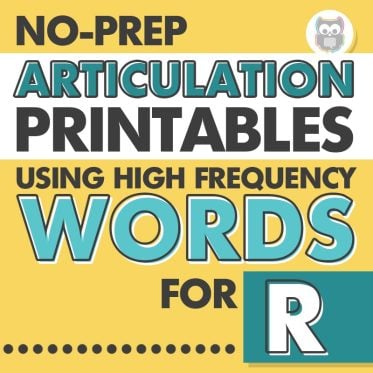About Sound-Level Speech Therapy
Similarly to how oral language skills lay the foundation for more advanced language development, a solid foundation of phonology skills often support later, more advanced language skills including vocabulary and syntax.

Our speech perception skills create phonological representations of words we hear.
These phonological representations mediate speech sound production and phonological awareness skills (Roepke & Brosseau-Lapré, 2023).
This explains how and why speech perception can impact both our students’ speech sound production skills and their phonological awareness skills.
Here’s a graphic to show how these skills relate to one another:

In addition to impacting their overall intelligibility, difficulties with any part of this system can impact our students’ ability to learn new words, comprehend what they hear, and develop robust reading skills. PS: This has been shown in research, even after speech sound production errors have been corrected (Farquharson, 2015).
Phonological memory, or the ability to remember sequences of sounds, is also correlated with vocabulary and grammar development.
Many researchers believe that one of the root causes of dyslexia is a phonological deficit (although it is likely multi-factorial). This means students with dyslexia may have difficulty involving some part of the system shown above (including the phonological representations, perception, or retrieval process for speech sounds).
Overall, phonology skills are a critical piece of building a solid foundation of speech and language skills with our students.
Top Speech Sound Resources
Here are my favorite resources that target sound-level skills for speech therapy:
Targeted Teaching of Sounds
There are four main types of activities I do with my students who have needs at the sound level:
1 – Targeted bombardment to boost awareness (ex: rhyming books, /k/ word lists, sentences with alliteration, auditory bombardment lists like those in my Cycles Toolkit).
2 – Contrastive activities to increase understanding of sounds and meaning (ex: minimal pair activities).
3 – Production practice to increase accuracy. (ex: drill-based therapy, scaffolding success, high repetitions of correct productions)
4 – Phonological awareness activities to support overall literacy skills. (ex: rhyming, sound isolation, blending, segmentation, addition, deletion, substitution)

Additional things I do to really “beef up” these interventions with my students are:
- Show the written form of the target word or sound. This is important for supporting the development of literacy and letter/sound correspondence skills. Check out the research from Rehfeld et al. here!
- Teach articulatory placements alongside the sounds. See the research here!
- Provide hands on manipulatives or visuals. I found something like these cubes at a second hand store, but even letters written on index cards would work! Truly any motivating item that you have 3-5 of would work well for these activities (cars, blocks, stuffed animals, cards).
Wanna snag my free speech sound cue cards that put these 3 supports together into one simple visual for every speech sound? Click here!
I’d recommend calling Phonological Awareness activities “sound puzzles”. I start most of my sessions with a “sound puzzle” of the day! It’s quick, easy, and is often a good confidence boost before we start potentially tougher activities.
PS: Don’t underestimate your students’ ability to engage with these types of activities! My students have been surprisingly motivated by simple phonology activities, especially when using manipulatives or visuals they can move around. It’s easy to see progress so that can be motivation enough for many learners!
Practice Speech Sounds in Context
You can also target phonology skills in context. That means working on speech sounds and phonological awareness activities within the context of different themes, texts, activities, and my favorite medium, picture books.
Some easy ways to target phonology in context are:
- Directly breaking down and discussing the sounds in vocabulary words or words from a story.
- Doing phonological awareness activities with thematic words (words related to a theme, story, or text).
- Pausing while you read to break about multisyllabic words you encounter. Better yet, have your students say tricky words out loud and evaluate their own productions.
All of my contextualized units (story units + themed units) include a monthly calendar with daily phonological awareness questions and activities making it easy to target these important skills in context!
To see examples of contextualized units for different themes or original picture books made specifically for speech and language therapy sessions, check out my Story Units and Themed Units below.








